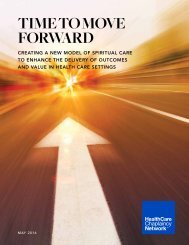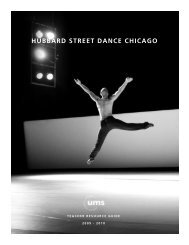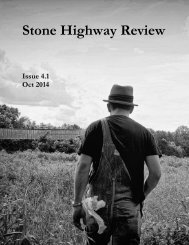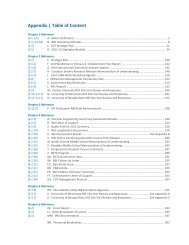Fries
Fries
Fries
Create successful ePaper yourself
Turn your PDF publications into a flip-book with our unique Google optimized e-Paper software.
ICAME Journal No. 34drama is perhaps the best compromise between the living spokenEnglish and the written English of literature. (1925: 987)His interest in obtaining approximations of the spoken language is alsoresponsible for the fact that the data he used for the history of the structural useof word order contained only examples taken from prose. (He assumed that thelanguage used in poetry was likely to deviate from the spoken language morethan did the language of prose.)2.5 Linguistic analyses should be reliable and replicableIn each of his projects, <strong>Fries</strong> wanted his descriptions to be based on a body ofevidence which should, in principle, be available to other investigators for theirinspection. Thus his descriptions are based on examinations of explicit corpora. 8Table 2 lists the major projects he engaged in and the data used in each (see Section3.7 below).In addition to the replicability issue, he also felt that corpora needed to bereliable samples of the normal language used as people interacted with oneanother. He was deeply suspicious of the conscious judgements of speakerswhen they were focussing on their language rather than using their language forsome immediate social purpose. (Note the adjectives in the phrase the spontaneous,unstudied speech in his description of the ideal data to use for his survey ofAmerican English grammar above.) He wanted samples of the language as actuallyused by speakers when they were occupied with the immediate demands ofcommunicating in a situation. In his view, speakers do not really know whatthey actually say, and often provide inaccurate information when they are thinkingconsciously about the language they use. <strong>Fries</strong> (1964: 245) expressed hisattitude toward mechanical recordings made in artificial laboratory situations:There must be mechanical records of a substantial body of materialswhich can provide any number of exact repetitions for analytical study.But we no longer believe that we can accept as satisfactory evidencethe recordings, made in a laboratory, of specially constructed conversationsread or recited by those who are aware that their language isbeing recorded. Such conscious recordings inevitably show manyimportant differences from those live conversations, made when theparticipants do not at all suspect that recordings are in progress.The need for systematically examining some corpus of examples runs throughhis work either explicitly or implicitly (1925, 1940a, 1940b, 1952, 1964), but heput the issue most clearly in a letter he wrote to me in 1959:100








